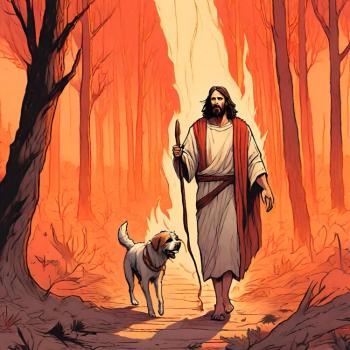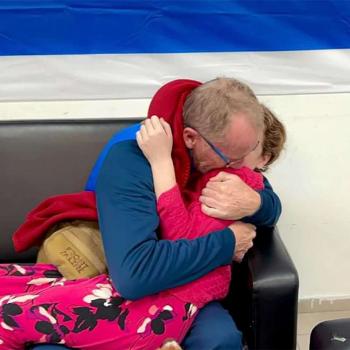One of the reasons we exhibit very little spiritual power is because we are unwilling to accept and experience the fellowship of the Savior's sufferings, which means acceptance of His cross.
- A.W. Tozer
"May I see your I.D.?" These are familiar words to us today in our security-conscious world. Before boarding an airplane, the most important item we must have in our possession is some legitimate form of identification. Otherwise, we won't be allowed on the flight.
Someday at heaven's gates, we will be checked to make sure we have the correct "identification" as well. I call it our Easter I.D. When we have a correct Easter I.D. we live our lives in view of His, the way God wants us to—as "hidden with Christ in God" (Colossians 3:3, NIV).
The events in that final week of Jesus' ministry on earth—the Garden, the Cross, and the Resurrection—serve as a roadmap of reassurance for us. When we have a correct Easter I.D. we do more than simply believe in Jesus Christ; we identify with Him and correlate the events in our lives to the events in His.
Christ crucified: He identified with us
Jesus' life and ministry on this planet were all about identification—identification with mankind, with you and with me. From His humble manger birth to the wilderness temptations, He identified with our humanness, our struggles and our weaknesses. As the Bible says, "We don't have a priest who is out of touch with our reality. He's been through weakness and testing, experienced it all—all but the sin (Hebrews 4:15, The Message)."
Against the horrible backdrop of Christ's cross, something glorious stood out like a brilliant diamond against a black-velvet display case. The harder Jesus' body was hit with grief and torture, the more His radiant spirit shone, especially seen in the three prayers He prayed from the cross:
"Father, forgive them, for they do not know what they are doing" (Luke 23:34).
On the cross Jesus displayed such a loving perspective. Nothing is more loving, or more difficult, than forgiveness. Jesus looked into the faces of His mocking executioners and felt compassion for them. He looked beyond their cursing mouths and saw tongues yet untamed; He looked beyond the pounding of the nails and saw hammer-holding hands yet un-cleansed; He looked beyond impassioned anger and saw hearts He came to save.
Jesus had every right at the cross to judge those men who wounded Him, to annihilate them for their blasphemies and crimes. He chose instead to forgive. What we deserved was judgment; what we needed was forgiveness. Jesus forgave freely. The diamond sparkled, but few on earth even noticed.
"My God, My God, why have you forsaken me?" (Mark 15:34).
On the cross Jesus asked a desperate question of His Heavenly Father; not the question I would have expected, certainly not from the Son of God. I would have expected something more like the one He asked at Gethsemane—one directed to His disciples, such as: Why have you men forsaken Me? I saved you from sea storms and sickness. Why in My darkest hour of need would you forsake and reject Me?
But Jesus' deepest question was not for the friends around Him, but for a Father above Him. These were the most haunting words Jesus ever spoke: "My God, My God, why have you forsaken me?"
This moment was the climax of Jesus' life of identifying with mankind and humanity's needs, the moment when He fully became all that we needed Him to be. He not only bore our sins, He became our sin (2 Corinthians 5:21) and called on heaven itself to unleash every ounce of punishment we deserved, not on us, but on Him. The most terrifying component of that price was Jesus' vicarious sense of separation from His Father. He identified fully. He felt what we surely deserved to feel.
"Father, into your hands I commit my spirit" (Luke 23:46).
On the cross Jesus made an ultimate decision. The conflict of the cross was the unprecedented intersection of divinity and humanity. Heaven and hell collided with each another on Calvary and Jesus found himself caught in the crossfire fighting for our very souls. Yet He found a way to trust His Father through the torment.
"Father, into your hands I commit my spirit"—When facing the worst the cross had to offer, Jesus braced himself with an incredible trust in His Father's care. When His "spirit" became overwhelmed as He faced death, He committed His spirit to the One who alone could keep Him safe.
Crucified with Christ: We identify with Him
Jesus said that following Him would require that we carry a cross of our own: "If anyone would come after me, he must deny himself and take up his cross daily and follow me" (Luke 9:23, emphasis mine). In life, there are certain "crosses" to bear—certain hardships, conflicts and limitations. There is a big difference, however, between carrying a cross and being crucified on one, and the difference can be summed up in one word, nails.





